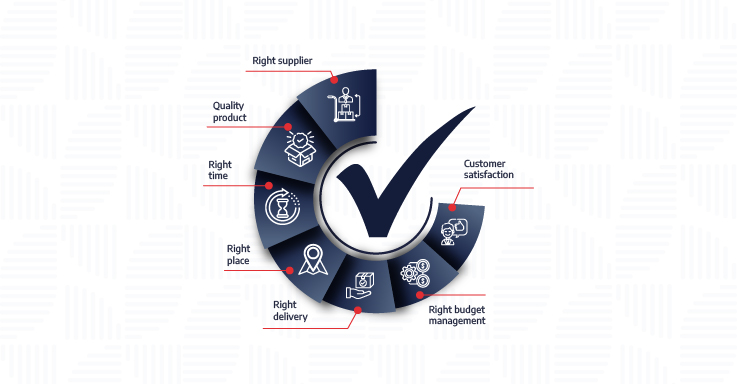ISO certifications offer significant advantages for enterprises in terms of business management systems for quality, environment, safety. In this blog, we want to talk about the importance, benefits and advantages of ISO certifications for companies.
In the increasingly competitive business world, businesses are taking various measures to raise their quality standards and gain international recognition. The most common among these measures are ISO certificates established by the International Organization for Standardization. ISO certifications offer businesses the ability to meet international standards to keep pace with today's world in a variety of areas, while assuring their customers of quality, safety and environmental compliance.
• What are the benefits of ISO certifications for businesses?
The International Organization for Standardization offers various benefits to businesses by encouraging them to adhere to established standards in areas such as quality, efficiency, safety and sustainability. Instead, it is recommended that all businesses obtain ISO 9001 for quality management and customer satisfaction. Generally accepted standards such as ISO 9001 help businesses prove the quality of their products and services and gain the trust of international customers.
Considering efficiency and cost reduction, in addition to ISO 9001, standards such as ISO 14001 environmental management system and ISO 45001 occupational health and safety management system can be mentioned. These standards offer businesses the opportunity to optimize their processes and reduce waste.
ISO standards are also an important tool for complying with local and international legal regulations. For example, the ISO 27001 information security management system standard helps businesses comply with legal requirements related to information security.
ISO certifications, which enable businesses to strengthen their continuous improvement and innovation processes, also prove that they have a reliable and strong reputation in the business environment.
As a result, ISO certifications offer businesses a wide range of benefits. Therefore, every enterprise can make the most of these advantages by choosing the ISO standards suitable for its field of activity and goals. Let's take a closer look at ISO certifications:
1. Quality management: ISO 9001 enables enterprises to define and improve their quality management systems. Businesses that implement this standard manage their processes more effectively, increase customer satisfaction and strengthen their position in the market.
2. Environmental management: ISO 14001 helps enterprises to reduce their impact on the environment and increase their sustainability. This standard effectively manages environmental risks by complying with legal requirements. This creates a positive opinion about the company among customers and stakeholders. Facilitates access to "green" markets and provides opportunities for market expansion by offering environmentally friendly products and services.
3. Occupational health and safety management system: ISO 45001 it is a standard that helps ensure the health and safety of workers in these establishments. This supports workers to work in healthy conditions in enterprises by reducing occupational accidents.
• Other international ISO certifications that businesses can obtain, depending on the industries they operate in, are:
4. Social responsibility management: ISO 26000 is a standard that helps businesses understand and manage their social responsibilities. It ensures transparent communication with stakeholders based on the principle of sustainability, promotes ethical behavior and supports them in fulfilling their obligations to society. It also increases the reputation of businesses, as they are perceived as an organization that considers and fulfills its social responsibilities to society.
5. Anti-bribery management system: ISO 37001 helps businesses protect their reputation by ensuring they adopt an effective approach to combating bribery and corruption. It also enables businesses to continuously review and improve their anti-corruption policies and processes.
6. Information security management: ISO 27001 the purpose of the standard is to protect internal business information, ensure information security and continuous improvement. This standard encourages businesses to comply with legal and regulatory requirements and improve their information security policies.
7. Customer satisfaction management: The ISO 10002 it aims to ensure continuous improvement to effectively manage customer complaints and increase satisfaction. The standard enables businesses to collect, analyze and respond to customer feedback, which strengthens customer relationships. The ISO 10002 certificate increases the company's reputation, showing customers that they are a reliable company where complaints are taken seriously and resolved.
Businesses need to go through several stages to obtain ISO certificates. At this time, the existing processes should be reviewed and the necessary preparation process should be started to adapt to the specific ISO standard, training should be given to the responsible persons. After that, the certification process should be started by applying to the relevant institutions and inspections should be carried out.
You can take advantage of our services from the preparation stage to obtaining ISO 9001, ISO 14001, ISO 45001 certificates by contacting Global Management's Quality Assurance and Quality Control team.









